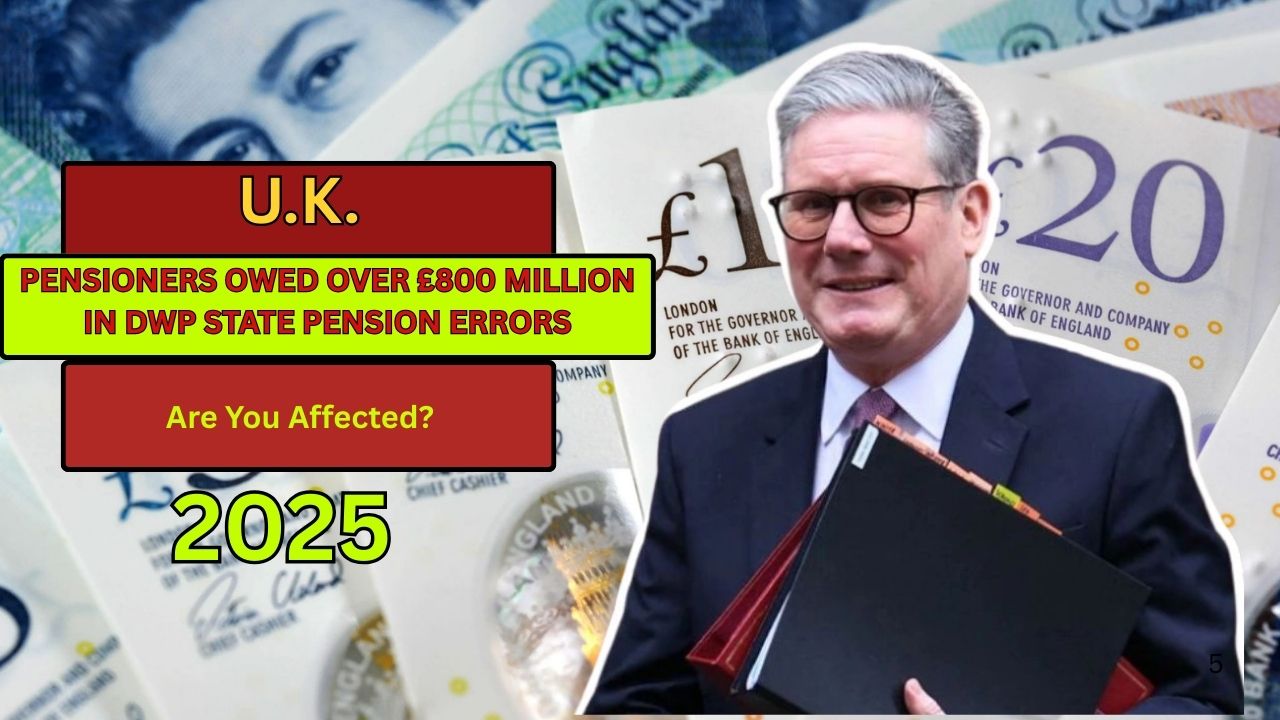More than 130,000 pensioners in the UK have been underpaid their rightful state pension due to errors by the Department for Work and Pensions (DWP), with the total amount owed now exceeding £800 million. The affected individuals, mostly women, have been encouraged to check their pension entitlements as the government continues to review cases that date as far back as 1985.
Who Is Affected?
The state pension errors stem from administrative oversights related to outdated systems and incomplete records, particularly affecting the following categories:
- Married Women (Category BL): Women who were entitled to an increased pension when their husband retired but did not automatically receive it.
- Widows and Widowers: Individuals whose pension amounts were not correctly updated following the death of a spouse.
- Over-80s (Category D): Pensioners who were eligible for an uplift in their pension at age 80 but did not receive it.
- Caregivers and Mothers: Those missing Home Responsibilities Protection (HRP) credits, which were meant to boost their state pension if they took time off work to care for children or relatives.
According to the UK Government’s March 2025 report, a total of £804.7 million has already been repaid to 130,948 pensioners.
Average Back Payments by Category
The amount owed varies depending on the group affected:
- Married Women: Average repayment of £5,553
- Widows: Average repayment of £11,725
- Over-80s: Average repayment of £2,203
An additional issue involving HRP credits could affect over 370,000 individuals, with the government estimating £42 million already paid out due to these missed credits.
Why Did These Errors Happen?
The DWP has attributed the errors to outdated IT systems, human errors in applying policy changes, and failures in identifying when pensioners became eligible for increased payments. In many cases, the pension system did not automatically apply uplifts, particularly for those relying on derived or inherited pensions.
According to a Parliamentary report by the Public Accounts Committee, the DWP “missed clear opportunities” to identify and correct the errors sooner.
How Can You Check If You’re Owed Money?

While the DWP is in the process of contacting those affected, not everyone will be notified automatically. If you believe you or a family member may be entitled to a repayment, here’s what you can do:
- Use the LCP Underpayment Tool: A free calculator developed by pension experts LCP (Lane, Clark & Peacock) helps assess whether you could be underpaid.
Try the tool here - Contact the Pension Service: You can reach the Pension Service via the official gov.uk page or call 0800 731 0469 (from the UK).
- Check Your National Insurance Record: HRP credits might be missing if you were a caregiver.
Access your National Insurance record. - Write to the DWP: If your situation seems eligible but you’ve not been contacted, consider writing formally to DWP outlining your concerns.
What’s the Government Doing Now?
The DWP has pledged to review and correct all eligible underpayment cases by March 2027. While the process is ongoing, delays in tracing some individuals, verifying past eligibility, and manually reviewing paper records from decades ago have slowed the process.
Minister for Pensions Paul Maynard has acknowledged the issue, stating, “We are working hard to correct these errors and ensure pensioners receive the money they are due. It is a top priority for the department.”
However, watchdog groups and MPs have criticized the DWP for its slow progress and lack of automation in identifying all affected pensioners.
Final Thoughts
This situation highlights the importance of pension awareness and the need for regular checks on government benefit entitlements. If you or someone you know falls into one of the affected categories, it may be worth checking immediately whether you’re owed a significant sum.
For further assistance, consider consulting an independent financial adviser or pension specialist.
This article has been carefully fact-checked by our editorial team to ensure accuracy and eliminate any misleading information. We are committed to maintaining the highest standards of integrity in our content.

Outside of work, he enjoys playing chess, following cricket, and writing short stories. His commitment to integrity and in-depth analysis strengthens OTE News’ mission of providing trustworthy journalism.




